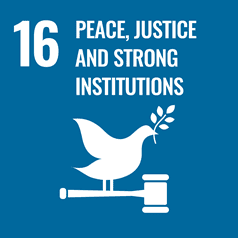From the family of Ash Good: "Overnight we have been shocked by some media publications reproducing photographs of Ashlee, her partner and our baby girl without our consent. It has caused extreme distress amongst Ashlee’s loved ones and we request that the photos be taken down."
— amanda meade (@meadea) April 14, 2024
Good, 38, was an osteopath who liked to exercise, post photographs of her young family and share thoughts on new motherhood: the endless nights and blurry days, the joy, the anxiety, the “indescribable love”.
Journalists discovered this from “mining” her (and her friends’ and family’s) social media accounts.
As well as Good’s family, federal politician Allegra Spender, whose electorate of Wentworth covers Westfield Bondi Junction, posted on social media a plea for “the media and everyone” to respect the wishes of those affected by the “tragedy at Bondi Junction”.
She wrote: “I have been contacted by Ash’s family. They have asked the media not to publish personal images from social media. I ask the media and everyone to respect their wishes.”
But will the victims’ privacy be respected? My research indicates that is unlikely.
What can, and can’t, journalists do?
The practice of journalists taking photos from social media, both with and without consent, is now commonplace, and is sanctioned in Australia by law and by professional codes, with some caveats.
Journalists are exempted from the Privacy Act “in the course of journalism”, and while advice from professional bodies such as the Australian Press Council and the Australian Communications and Media Authority (ACMA) is to tread with caution when reproducing images from social media, they do permit publication “in the public interest”. So do the guidelines of media companies, including the ABC.
The ethical code that binds member journalists in Australia, the MEAA Code of Ethics, also advises journalists to respect privacy and grief. It gives them the right not to intrude, but tempers this advice with a “guidance clause” about their capacity to override standards if publication is in the public interest.
The “public interest” is a nebulous concept that increasingly extends to “what the public is interested in”.
The modern-day ‘death knock’
As citizens and news consumers, we want information about everyone who is impacted, and it is the job of news reporters to feed the hungry beast that is digital news. How can they resist the intensely personal content that is shared on “public” social media accounts which gives such a human face to tragedy? Is it reasonable to expect them to?
These are questions I am exploring though my PhD research into the practice journalists informally (and perhaps unpalatably) call the “death knock”.
On hearing of a newsworthy death (or crime or major incident), journalists will do whatever they can to get information about the people impacted – the perpetrators, victims, and witnesses.
The job of gathering news is to find the most credible sources, and, in addition to expert voices (such as police, ambulance, health authorities and politicians), those who know something about the event or the people impacted.
Related articles

The High Court made a landmark decision on native title law. Here’s what it means
Aboriginal and Torres Strait Islander readers are advised this article contains the name of a deceased person.
Read more

More than two thirds of organisations have a formal work from home policy here's how the benefits stack up
The opposition wants to call time on letting public servants work from home. In a speech to the Menzies Research Institute this week, shadow public service minister Jane Hume said, if elected, a Coalition government would require public servants in the office five days a week:
Read more

From bean-counters to cyber-sleuths: how accountants are a frontline defence against online crime
Once considered to be simply “bean counters”, accountants now play an important role in the defence, investigation and protection against cybercrime.
Read more

How can you stay safe from cyber attacks? Here are 2 simple checklists from experts
“Cyber security” may sound like a far-off worry for big corporations or telcos, but that’s far from the case.
Read more

Conservative governments protect more land while socialists and nationalists threaten more species
The dire state of biodiversity across the globe suggests not all governments are willing to act decisively to protect nature. Why is that the case, and is a country’s political ideology a factor?
Read more

Bold climate action benefits more than just the environment - it's also great for business
As the world grapples with the intensifying challenges of climate change, businesses are under increasing pressure to take action.
Read more
Should journalists ask for permission?
Increasingly, in the digital age, newsgathering starts (and sometimes ends) with journalists mining social media.
Journalists use social media as a tool to find people they want to interview, but also as a source of information, images and tributes.
If people’s accounts are set to “public”, there is nothing to stop journalists using the photos and comments they find there in their stories.
Some journalists will pause and ask for permission, but not all will, and most do not feel compelled to.
However, my research indicates that journalists, by and large, are not thoughtless when it comes to what some view as stealing images from social media. They face enormous pressure to do so, from colleagues, editors and competitors.
Many argue that if images are in the public domain, they are fair game. And if everyone else is doing it, why wouldn’t they? They may ask themselves “how can I tell my boss I’m not going to do it when our competitors have already done it? If I pause to ask for permission, will I be scooped? What if I don’t hear back? What if permission is refused?”
In the UK, where protections from media harassment are arguably stronger, people impacted by tragedy are advised to check their social media privacy settings or delete material altogether.
This though assumes users are social media-literate, but journalists are “very adept at finding ways around privacy settings, and won’t hesitate to do so in pursuit of a story or photo”.
A better path forward?
Reporting on tragedy is routine work for many journalists, but it can take its toll, sometimes in the form of moral injury, when they feel compelled to break their own moral code.
My research indicates journalists want better preparation, guidance, and support from their employers in reporting tragedy, and they want to be listened to about the impacts of this work on them.
However, in the realm of the “digital death knock” – the use of social media to report on tragedy – some argue that an ethical approach alone cannot stem what some believe is egregious behaviour, and that legislative (citizen privacy protections) and normative (stronger advice from professional bodies) approaches may be needed to protect journalists from themselves – and better protect people who fall victim to tragedy.
This article is republished from The Conversation under a Creative Commons license. Read the original article.
